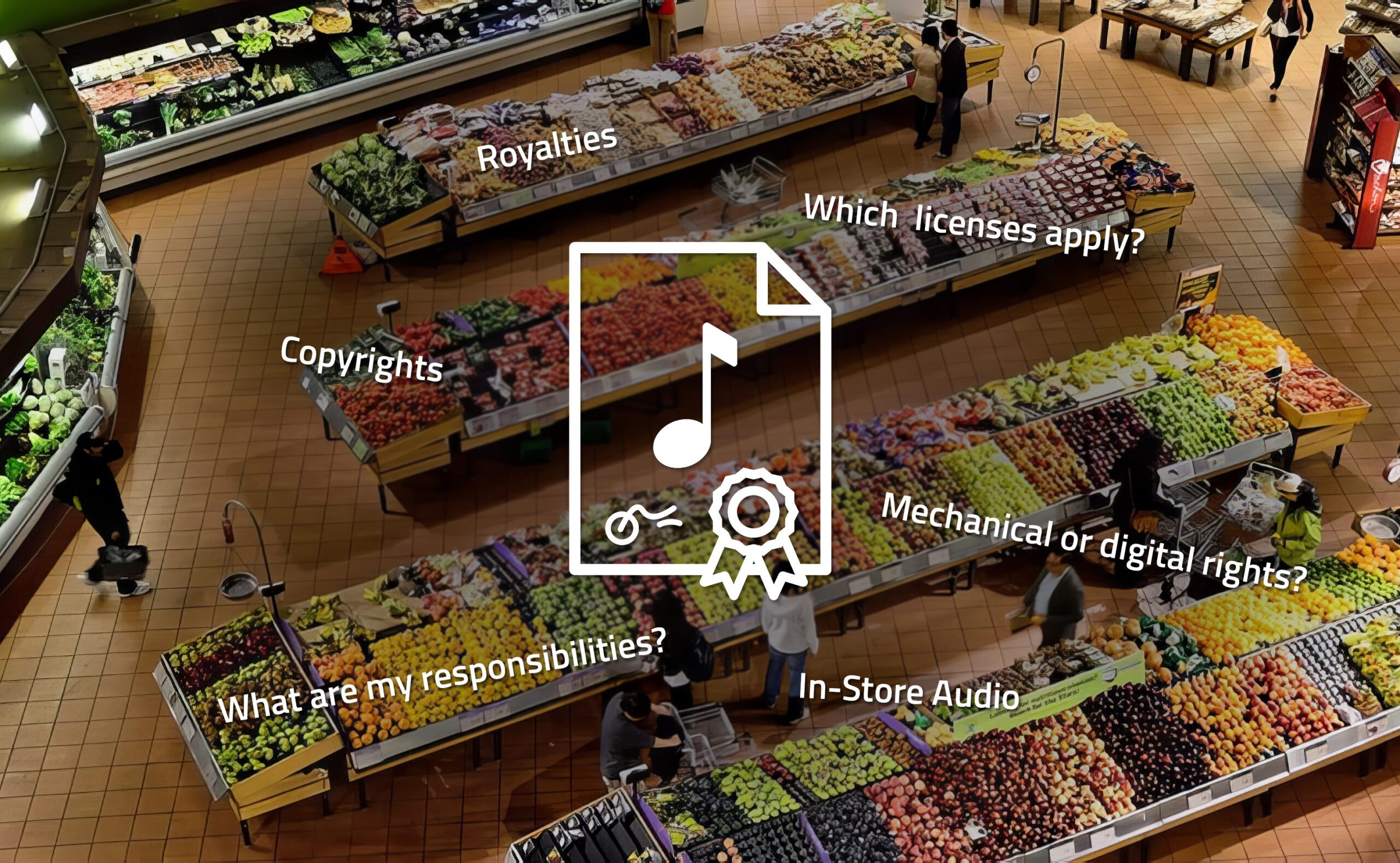During these years we at Streamit have spoken with many startups and often the question is: which music licenses do we need to arrange? In this blog I would like to address this issue globally. Or, as one of my customers said: this can be a complicated can of worms. I will address some of these worms. Please note this article does not address the licenses your business customers need to have. This part is much easier: they just need to sign a contract with the collecting society in their country.
The music business is a very big market, it generated $32 billion in 2017 according to a Citygroup report published in august 2018. There are many people who want to have a piece of this big cake. You can find many articles on the web about music licensing. In case you are new to this topic, I would suggest you to read some wiki’s about this. A good starting point is the Music Law wiki and the Music Licensing wiki. Important is also the Rome Convention (which has not been signed by the US) As the topic is juridically complicated, many lawyers are working in this field.
It is important to understand the main differences in the licenses which exist. Let’s see what we have:
Author’s rights
It all starts with the author’s rights of the lyricist(s) and the composer(s) of the music. These are called the Music-author or Songwriter rights. Usually authors do not run their own business, they sign contracts with Publishing companies who handle the business side of their work: getting money for Public performances (Radio/TV broadcast, Internet broadcast, etc.). These publishing companies also get their money from these licenses. Almost each country has organisations who handle these licenses. Examples are ASCAP, SECAC, BMI in the USA; PRS for Music in the UK and the BUMA in the Netherlands.
Performer’s rights
The artists and musicians who perform a musical work also have rights. These are called Performers’ rights. Another name which is used is Neighbouring rights, as these rights always are associated with Author rights of the lyricist(s) and composer(s). The companies who make the recordings of these artists and musicians are called the Copyright or Master tape owners. Almost each country also has organisations who handle these licenses. Examples are Soundexchange in the USA; PPL in the UK and the SENA in the Netherlands.
Mechanical licenses
In case someone wants to create a CD recording or a digital download of a song another kind of license is required. This is called a Mechanical license. This is a big can of worms as licensing is arranged through different laws. Download this pdf for some examples which describe some issues. Usually Mechanical rights are arranged in each country through Mechanical Rights organisations. If I understand well, in some countries these organisations only represent the Songwriters (for example the US). So you need to make an arrangement with the Master tape owners yourself in case you want to use their songs for, for example, a download on your website.
What does this mean in case you want to distribute in-store audio?
You need to have a license to distribute your audio. As far as I know, you can arrange this easily for streaming in most of the countries. Just have a look at this wiki and you will find the organisation who is responsible for this licensing in your area.
Some examples:
- In the US you need to arrange a license with ASCAP, SESAC, BMI and Soundexchange (streaming only). For Store-and-forward, you need to sign a license with Harry Fox agency and all the record labels.
- In the UK you need to get a license from PRS for music: streaming and store-and-forward
- In The Netherlands you can arrange it through Buma Stemra and Sena (procedure not fully clear to me yet).
Another worm is where you are allowed to send your streams. Only to the country where you signed the contract or all your customers worldwide? I think most companies interpret it the following way: In case you are streaming from Germany into the UK, there is no “mechanical” or “master” reproduction occuring in their jurisdiction, so the only license fees that need to be paid are for the Public Performance of the stream.
But what about streaming from, for example, Dubai where music licenses do not exist? Large companies use to pay tax in the countries with the lowest tax rates, so why not distributing your music from countries where music licenses do not exist? I am not aware of companies doing this, but I think it definitely exists. What do you think of music licenses in our industry? What are your personal worms?
